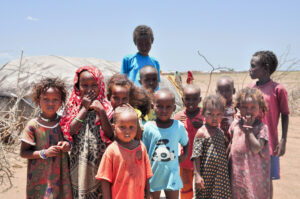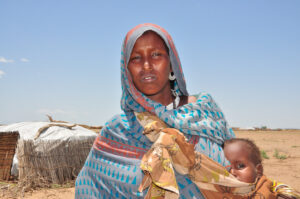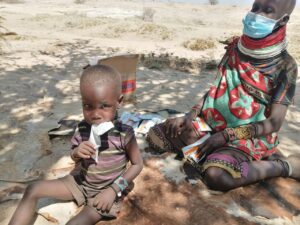The Dangerous Delay: We must not delay our action to stop the hunger crisis
Our world is in trouble. Millions of people in East Africa are going hungry and, sadly, the global community could have done something about it. The warning signs were there, including severe dry seasons in Southern Somalia, declaration of droughts in Kenya, and predictions of the high need of food assistance by the Famine Early Warning System Network. However, a coordinated global response was not prioritized and now it is forecasted that 181 million people will be in crisis levels of hunger this year alone.
Does this seem like Deja Vu? Unfortunately, it is. We were in this situation 11 years ago when Somalia experienced a devastating famine killing more than a quarter-million people – half of them were young children. The warning signs were also there in 2011, but the international community did not act at the right time. Promises were made to ensure a catastrophic famine would not be repeated, but now we are in a situation where so many people are suffering from hunger – yet again. This time, our actions as a global community should not be delayed.
The hard facts
- In Somalia and parts of Ethiopia, nearly half a million people are facing famine-like conditions
- Women are being particularly affected by the hunger crisis
- Without immediate action, the UN predicts 350,000 Somali children may die by the summer
- 3.5 million people in Kenya are suffering crisis levels of hunger
- More than 23 million people are facing crisis levels of hunger in Ethiopia, Kenya, and Somalia – this number has more than doubled since last year

Save the Children and Oxfam in partnership with Jameel Observatory and national and local leaders published a report, Dangerous Delay 2: The Cost of Inaction which examines the humanitarian aid system since 2011 and determines that the global responses to the hunger crisis in the Horn of Africa have been too slow and too limited.
What can be done?
Save the Children and Oxfam are calling for specific and immediate actions to help tackle the hunger crisis in the Horn of Africa:
- G7 and western leaders must meet the $4.4 billion UN appeal for Ethiopia, Kenya, and Somalia.
- Donors must guarantee that at least 25 per cent of funds go to local responders at the heart of the response.
- Social protection to help people needs to be enhanced in Ethiopia, Kenya, and Somalia. This will help the population manage multiple shocks, including droughts, economic crises, or conflict.
- National governments must prioritize lives over politics, by acknowledging and acting on early warnings.
- Rich polluting nations must pay East Africa for its climate loss and damage.
- Debt from 2021-2022 should be cancelled for East African countries, to free up resources to support people.

It is devastating to know that parts of the world are on the brink of famine, and even more shocking to know we have been here before. Millions of children and their families have once again been failed by the global community. We owe it to the millions of people in the Horn of Africa and around the world who are facing hunger to halt this crisis. We must also take a lesson from the past, to ensure we pay attention to warning signs to avoid a crisis like this from ever occurring again.
To support our work around the hunger crisis please click here.


